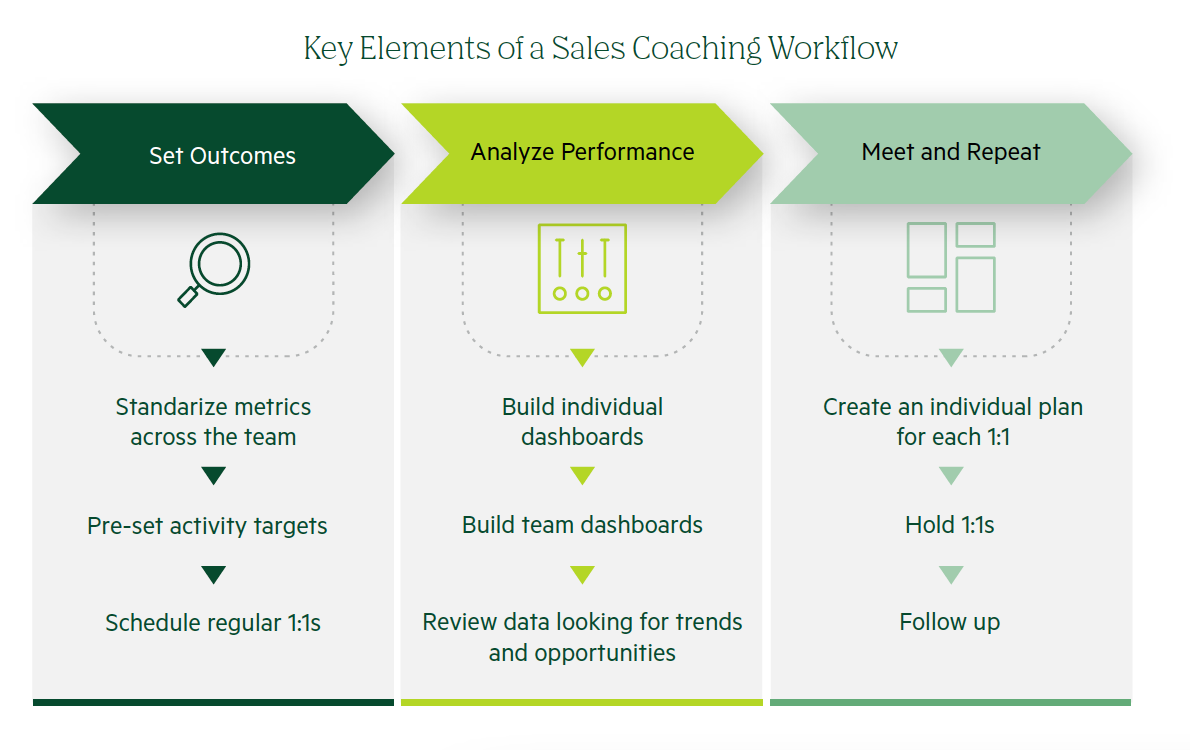Use Data-Driven Sales Coaching To Shape Your Team's Success
Published:

Is data-driven sales coaching a buzzword or are you actually putting your data to use?
The best sales coaches focus on outcomes, not activities. They're using activity metrics to pinpoint areas where they can help each seller improve and to measure impact on outcomes (revenue goals). The right metrics should:
- Indicate progress toward the outcomes you have established
- Offer actionable insights that reps can actually use to improve
- Help create an individualized plan for each rep
Download the guide to see the 10 metrics top sales managers can't live without.
“I don’t want to have a conversation around how many phone calls and emails. I want to have a conversation around accounts and strategy and how we can help sellers get to their ultimate professional goal.”
Making the Shift to Data-Driven Coaching
When you are using data to understand sales performance, you can pinpoint the problematic behaviors of low performers and see what is leading to success for high performers. By individualizing your 1:1 meetings and coaching to each seller's needs, performance will improve across the sales team and reps are more likely to stick around. According to Zengar Folkman, a leadership development agency, 60% of reps are more likely to leave their jobs when their manager is a poor coach.
This all sounds great, right? But, how do you make time for data-driven coaching? Follow a proven workflow.

Inside this guide, dig into data-driven coaching best practices and other tips, including:
- Metrics top sales managers can't live without
- Ideas to save time on 1:1 prep
- 5 secrets to data-driven sales coaching





























